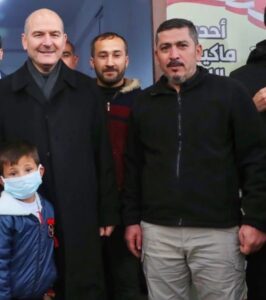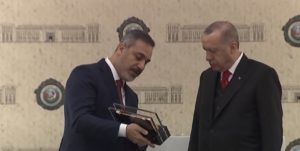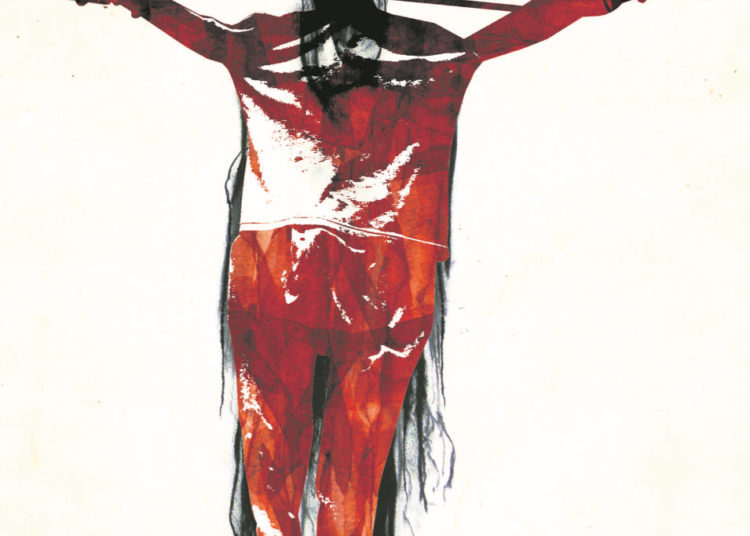Abdullah Bozkurt/Stockholm
A report issued by a United Nations commission on February 7, 2023 reveals the involvement of Turkish officials in the torture of victims who were arbitrarily detained in Syria by armed factions aligned with the Turkish Armed Forces (TSK).
The Independent International Commission of Inquiry on the Syrian Arab Republic, established by the UN Human Rights Council, found cases of abuse and torture in which Turkish officials including agents from Turkey’s spy agency MIT (Milli İstihbarat Teşkilatı) participated in and contributed to the torture of victims.
The February report is in line with the commission’s earlier findings in the last few years that confirm a pattern of involvement of Turkish officials in human rights violations in territory that is under the control of the TSK or its allied factions.
The UN commission underlined that detainees were arbitrarily rounded by the Turkish-backed Syrian National Army (SNA) and its various factions, often in violation of due process. In most cases the perpetrators were not punished.
In one specific case of torture reported by a Kurdish survivor, an unidentified Turkish official, likely an intelligence agent, interrogated him through a translator and helped guards put him in what is called “shabh,” i.e., hanging the victim from the ceiling by his arms.
UN report cites the presence of Turkish intelligence agents during torture sessions in which they participated in the abuse of detainees in Syria:
The incident took place at the Hawar Killis prison, a facility run by the Sultan Murad Division of the SNA, where the victim was blindfolded, stripped naked and beaten and had his toenails pulled out. A Turkish official even threatened the person with rape.
According to the UN report, civilians in Afrin and Idlib where the TSK and its allied factions maintain control were subjected to arbitrary and incommunicado detention, and some were detained in a manner tantamount to enforced disappearance.

The report covered cases recorded between July 1 and December 31, 2022 and confirmed a pattern of abuse and torture by Turkish officials and their allies in the north and northeast of Syria that were widely documented in previous reports issued by the same commission.
Torture and abuse are also rampant in detention centers and prisons in Turkey, where victims were subjected to shabh, known as “filistin askısı” in Turkish, beatings, electroshock and sexual harassment and violence including rape and threat of rape. Shabh was particularly used in the 1990s by members of the security forces in Turkey’s predominantly Kurdish provinces. The practice was halted for a while but made a comeback along with other means of torture and abuse after 2016, when tens of thousands of people were detained for their alleged links to the Gülen movement, a group that is critical of President Erdogan and his government on a range of issues from pervasive corruption to aiding and abetting of armed jihadist groups.

A report released by the same UN commission on August 17, 2022 also stated that the victims who were interviewed by UN experts reported that people arrested by factions and individual members of the SNA were held incommunicado for periods ranging from one month to three years and that family members were denied information about the whereabouts of detainees. Some detainees were unlawfully transferred to Turkey as well.
Detainees were allowed to have contact with their relatives only after bribes were paid. Both male and female survivors, including minors, were subjected to beatings and other forms of torture by members of the SNA including rape and sexual violence that took place in makeshift detention facilities between 2018 and 2021.
One woman told UN investigators that she was subjected to rape and other forms of sexual violence in 2018 during interrogation by individuals wearing Turkish uniforms and speaking in Turkish.
In some cases detention resulted in death under torture according to the UN. In one instance, an Arab man detained in Afrin on February 24, 2022 by the Falaq al-Sham brigade was beaten to death at a military post.
Turkey was also accused of illegally expropriating land in Syria, the UN commission said. For example, in the Ras al-Ayn village of Dawouydia, the Turkish army and it allied groups used civilian properties for military purposes. “Kurdish residents have been prevented from returning to Dawoudiya since at least 2020, and homes have been destroyed. Since that time, they have also been unable to cultivate adjacent agricultural lands, while requests for compensation are, to date, being denied,” the report said.
Satellite images show how the Turkish army seized land to build bases in Syria:
“The failure of Turkish forces to provide payment for the requisitioning of private property may amount to a violation of international humanitarian law,” the UN warned in its report.
The UN commission revealed in the February 2023 report that Turkish intelligence officials were present during the interrogation of people who were detained arbitrarily by SNA-affiliated armed groups.
“Former detainees reported that factions conducted arrests and were responsible for the running of detention facilities, with Turkish intelligence officials sometimes present at or directing interrogations. Many detainees reported never having been brought before a judge, and that their release had been secured by bribes or external pressure.”
In detention centers run by the Turkish-backed the Hamza Division and the Sultan Murad Division, female detainees were photographed in their underwear.
The UN commission made clear that in areas under effective Turkish control, Turkey remains bound by applicable human rights obligations with regard to all individuals and has the responsibility to ensure public order and safety and to afford special protection to women and children.
Full report released by the UN commission in February 2023:
Turkey has been the subject of international criticism in recent years for rampant torture and abuse in detention facilities and prisons. Both intergovernmental and nongovernmental organizations have issued multiple reports that documented such violations that put Turkey at odds with the international conventions to which it is party. Torture and abuse have become a hallmark of the Erdogan government, which rules the country through fear and intimidation tactics.












